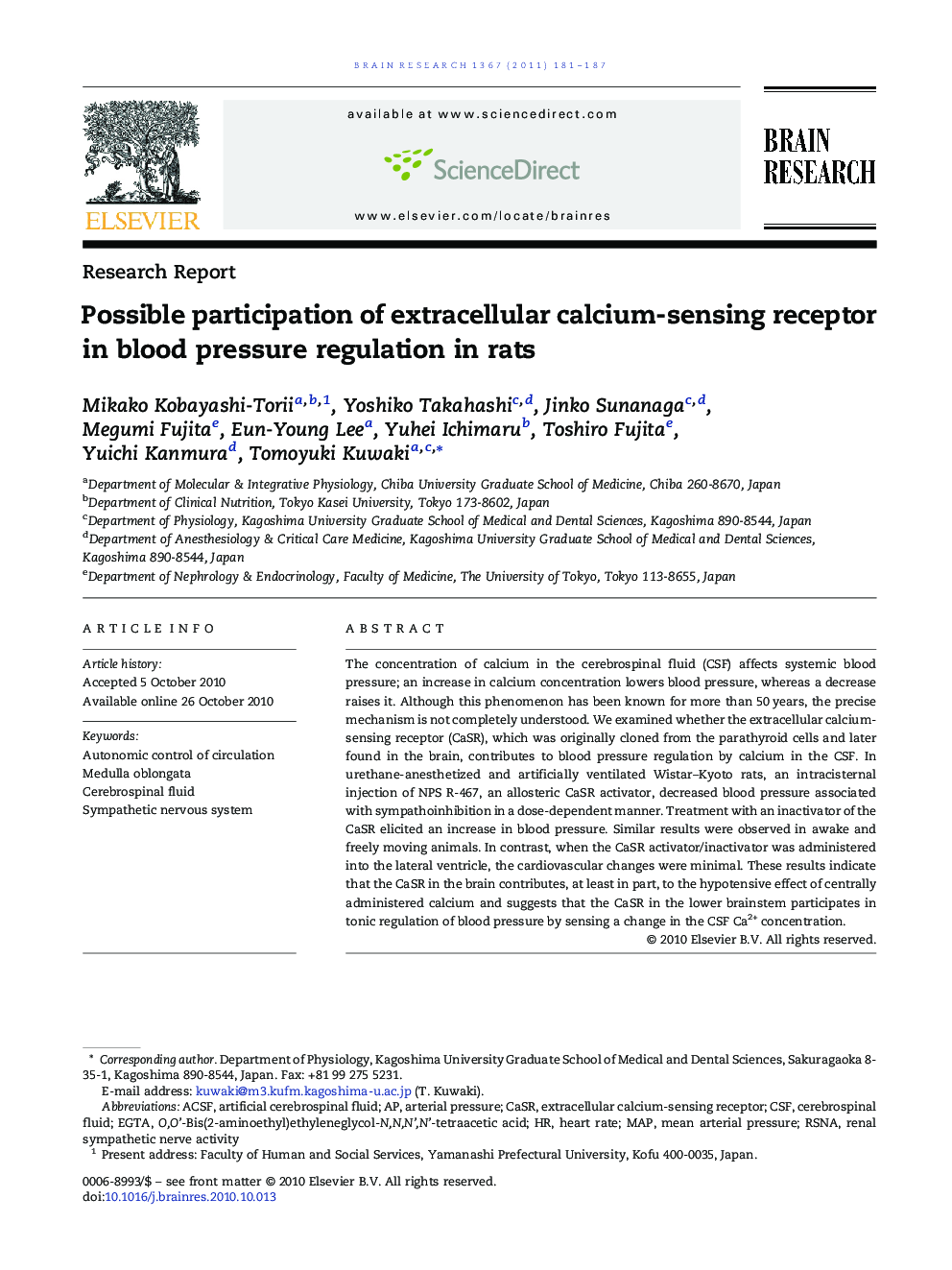| Article ID | Journal | Published Year | Pages | File Type |
|---|---|---|---|---|
| 6265322 | Brain Research | 2011 | 7 Pages |
The concentration of calcium in the cerebrospinal fluid (CSF) affects systemic blood pressure; an increase in calcium concentration lowers blood pressure, whereas a decrease raises it. Although this phenomenon has been known for more than 50Â years, the precise mechanism is not completely understood. We examined whether the extracellular calcium-sensing receptor (CaSR), which was originally cloned from the parathyroid cells and later found in the brain, contributes to blood pressure regulation by calcium in the CSF. In urethane-anesthetized and artificially ventilated Wistar-Kyoto rats, an intracisternal injection of NPS R-467, an allosteric CaSR activator, decreased blood pressure associated with sympathoinhibition in a dose-dependent manner. Treatment with an inactivator of the CaSR elicited an increase in blood pressure. Similar results were observed in awake and freely moving animals. In contrast, when the CaSR activator/inactivator was administered into the lateral ventricle, the cardiovascular changes were minimal. These results indicate that the CaSR in the brain contributes, at least in part, to the hypotensive effect of centrally administered calcium and suggests that the CaSR in the lower brainstem participates in tonic regulation of blood pressure by sensing a change in the CSF Ca2+ concentration.
Research HighlightsâºAn increase of calcium in the cerebrospinal fluid causes systemic hypotension. âºActivation of extracellular calcium-sensing receptor (CaSR) decreases blood pressure. âºDecrease of calcium or inactivation of CaSR causes hypertension. âºCaSR in the lower brainstem may participate in tonic regulation of blood pressure.
